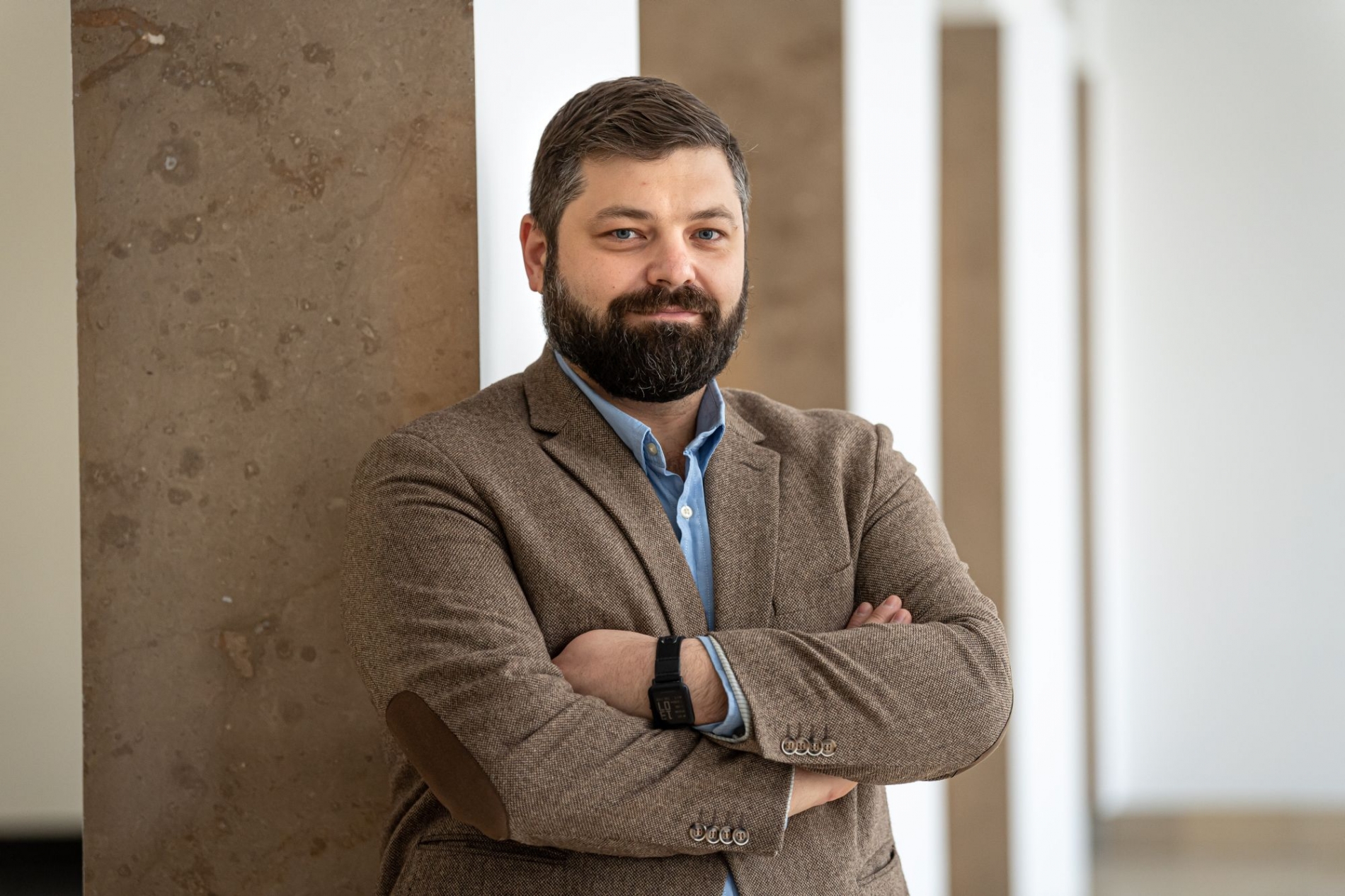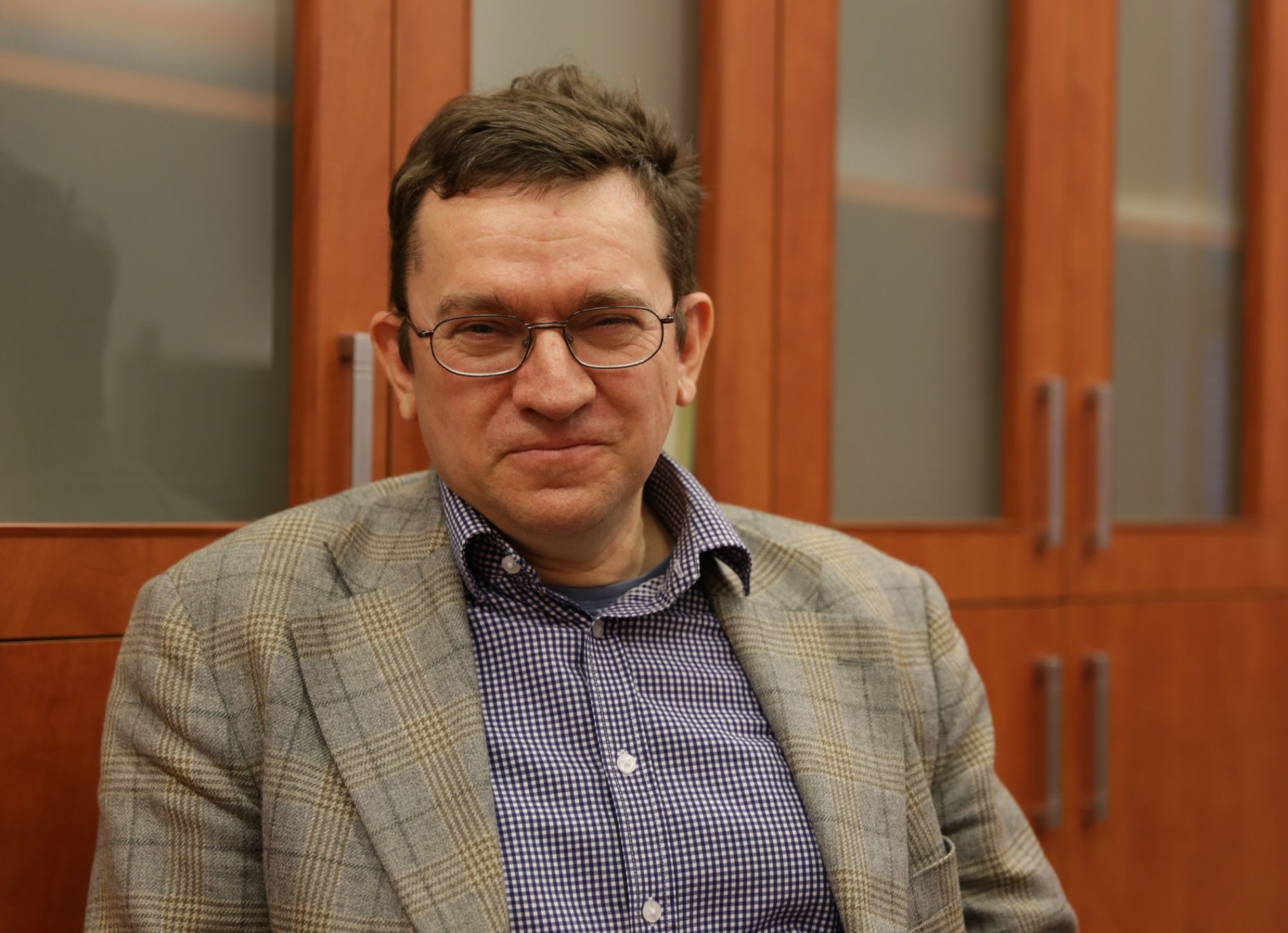YOUR BROWSER IS OUT-OF-DATE.
We have detected that you are using an outdated browser. Our service may not work properly for you. We recommend upgrading or switching to another browser.
Date: 04.02.2021 Category: admission, general news, studies
Is it the most sought-after profession in the IT industry? An artificial intelligent specialist! Such an education can be obtained at WUST. Two new master's courses provide training for future data analysts, machine learning experts, and data scientists, covering three semesters of solid knowledge and valuable practice.
 – These times are characterised by data overload. We are a civilisation that cannot function without processing them efficiently. Thanks to the advances in artificial intelligence, we can automatically extract information and knowledge from this data – says University Professor Tomasz Kajdanowicz, PhD, DSc. from the Department of Computational Intelligence of the Faculty of Computer Science and Management.
– These times are characterised by data overload. We are a civilisation that cannot function without processing them efficiently. Thanks to the advances in artificial intelligence, we can automatically extract information and knowledge from this data – says University Professor Tomasz Kajdanowicz, PhD, DSc. from the Department of Computational Intelligence of the Faculty of Computer Science and Management.
It’s there that one of the new master's degree programmes (Artificial Intelligence) has been created. The second, which is Trusted Artificial Intelligence Systems, is offered by the Faculty of Electronics. Both share the AI@WUST brand.
– We’re waiting for ambitious and hard-working people who aren’t afraid to commit themselves – ones intent on pursuing their passion. We’re looking for logical thinking enthusiasts who enjoy mathematics and programming – says Prof. Tomasz Kajdanowicz, Chairman of the Curriculum Committee of the Artificial Intelligence programme.
The academic ensures that AI graduates will be able to successfully participate in advanced machine learning and big data projects in a variety of roles, such as data analyst, data engineer, machine learning engineer, or data scientist.
– If you look at the current job offer trends, you’ll see that work in these fields of specialisations has recently been the highest-paid of all IT-related fields – adds Prof. Kajdanowicz.
Studying at AI@WUST is intended to prepare you to work for some of the world’s biggest companies operating in this industry.
The programme curriculum includes a total of 1,080 hours of theory and practical classes. The classes will be divided into compulsory and elective subjects.
 – We put special emphasis on preparing the graduate to work with tools for analysing large and diverse volumes of data, as well as machine learning and quantum algorithmics, including deep learning, advanced optimisation techniques, designing secure ICT architectures, natural language processing, as well as cognitive science and computer forensics – explains Prof. Wojciech Bożejko, coordinator of the Trusted Artificial Intelligence Systems programme at the Faculty of Electronics.
– We put special emphasis on preparing the graduate to work with tools for analysing large and diverse volumes of data, as well as machine learning and quantum algorithmics, including deep learning, advanced optimisation techniques, designing secure ICT architectures, natural language processing, as well as cognitive science and computer forensics – explains Prof. Wojciech Bożejko, coordinator of the Trusted Artificial Intelligence Systems programme at the Faculty of Electronics.
Our students will learn issues such as design of a secure ICT (Information and Communication Technology) architecture, including critical infrastructure and anomaly detection in ICT systems, design and application of advanced machine learning methods, including deep learning, also using high-performance computing and supercomputing systems (clusters, GPU), setting up and development of visual inspection systems, and multi-dimensional signal analysis.
The Faculty of Computer Science and Management, on the other hand, will focus on deep learning, natural language processing, metaheuristics and applications of artificial intelligence in business, affective computing, as well as data visualisation and communication of data processing results.
– The compulsory subjects will provide basic knowledge of artificial intelligence, while the elective classes are expected to enable the students to develop specialised skills in its application, such as digital media analysis, complex network analysis, audio analysis, image and video analysis, affective computing, or recommendation systems – adds Prof. Kajdanowicz.
 Already during their courses, future graduates will be able to choose one of three paths for further development, i.e. undertaking further studies and research to strive for a PhD, working in the best R&D centres in the world (e.g. Google, Facebook, Microsoft, or Samsung), and founding their own start-ups to operate in the fields of the development and application of artificial intelligence.
Already during their courses, future graduates will be able to choose one of three paths for further development, i.e. undertaking further studies and research to strive for a PhD, working in the best R&D centres in the world (e.g. Google, Facebook, Microsoft, or Samsung), and founding their own start-ups to operate in the fields of the development and application of artificial intelligence.
The curriculum also includes students’ research and implementation projects, which is to allow them not only to become more proficient in teamwork techniques but also gain hands-on skills related to the design of artificial intelligence systems with real-world problems in mind. This will allow them to build the technology for their own start-up already when attending their courses. Many of the projects will be carried out in cooperation with businesses.
– At both faculties, we will encourage involvement in academic work and research projects. Our students will receive support based on the knowledge and experience of people involved in large international projects connected with research into cryptography, operational research, computer networks, supercomputing, machine learning, natural language processing, deep methods, representation learning, complex network analysis, and telecommunications - adds Prof. Wojciech Bożejko.
Moreover, our students will take part in workshops, prestigious scientific conferences, and study visits. This will allow direct contact with the world's best scientists and the ability to present project results to wider audiences.
Enrolments for second-cycle degree programmes continues until February 12. Classes will start as early as the spring, and after three semesters the students will obtain a master's and engineer’s degree in computer science.
 Trusted Artificial Intelligence Systems (Faculty of Electronics) and Artificial Intelligence (Faculty of Computer Science and Management) are degree programmes that have been developed as part of the "Academy for Innovative Applications of Digital Technologies (AI Tech)", a project conducted by the Ministry of Digitalisation.
Trusted Artificial Intelligence Systems (Faculty of Electronics) and Artificial Intelligence (Faculty of Computer Science and Management) are degree programmes that have been developed as part of the "Academy for Innovative Applications of Digital Technologies (AI Tech)", a project conducted by the Ministry of Digitalisation.
Five Polish universities have joined it, including Wrocław University of Science and Technology. The intended outcome of the project is a model system for training specialists in the fields of artificial intelligence, cybersecurity, and machine learning.
Find out more about AI@WUST degree programmes on the studiuj.ai website.
Our site uses cookies. By continuing to browse the site you agree to our use of cookies in accordance with current browser settings. You can change at any time.